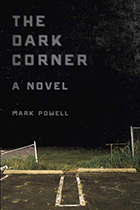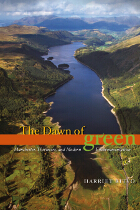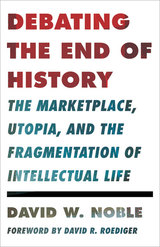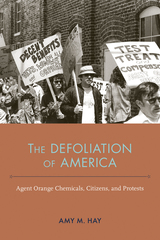5 start with D start with D

—Ron Rash, author of Serena and The Cove
"The Dark Corner is one of the most riveting and beautifully written novels that I have ever read. Trouble drives the story, as it does in all great fiction, but grace, that feeling of mercy that all men hunger for, is the ultimate subject, and that's just part of the reason that Mark Powell is one of America's most brilliant writers."
—Donald Ray Pollock, author of The Devil All the Time and Knockemstiff
“Mark Powell’s third novel powerfully tackles the ongoing curses of drugs, real estate development, veterans’ plights, and other regional cultural banes that plague an Appalachia still very much alive and with us as its own chameleon-like animal. Brimming with fury and beauty, The Dark Corner is a thing wrought to be feared and admired.”
—Casey Clabough, author of Confederado
“Powell’s work is so clearly sourced to the wellspring of all spiritual understanding—this physical world…He is heir to the literary lineage of Melville, Conrad, Flannery O’Connor, Denis Johnson, and Robert Stone.”
—Pete Duval, author of Rear View
A troubled Episcopal priest and would-be activist, Malcolm Walker has failed twice over—first in an effort to shock his New England congregants out of their complacency and second in an attempt at suicide. Discharged from the hospital and haunted by images of the Iraq War and Abu Ghraib, he heads home to the mountains of northwestern South Carolina, the state’s “dark corner,” where a gathering storm of private grief and public rage awaits him.
Malcolm’s life soon converges with people as damaged in their own ways as he is: his older brother, Dallas, a onetime college football star who has made a comfortable living in real-estate development but is now being drawn ever more deeply into an extremist militia; his dying father, Elijah, still plagued by traumatic memories of Vietnam and the death of his wife; and Jordan Taylor, a young, drug-addicted woman who is being ruthlessly exploited by Dallas’s viperous business partner, Leighton Clatter. As Malcolm tries to restart his life, he enters into a relationship with Jordan that offers both of them fleeting glimpses of heaven, even as hellish realities continue to threaten them.
In The Dark Corner, Mark Powell confronts crucial issues currently shaping our culture: environmentalism and the disappearance of wild places, the crippling effects of wars past and present, drug abuse, and the rise of right-wing paranoia. With his skillful plotting, feel for place, and gift for creating complex and compelling characters, Powell evokes a world as vivid and immediate as the latest news cycle, while at the same time he offers a nuanced reflection on timeless themes of violence, longing, redemption, faith, and love.
MARK POWELL is the author of two previous novels published by the University of Tennessee Press, Prodigals and the Peter Taylor Prize–winning Blood Kin. The recipient of National Endowment for the Arts and Breadloaf Writers’ Conference fellowships, as well as the Chaffin Award for fiction, he is an assistant professor of English at Stetson University.


Why do modern people assume that there will be perpetual economic growth? Because, David W. Noble tells us in this provocative study of cultural criticism, such a utopian conviction is the necessary foundation for bourgeois culture. One can imagine the existence of modern middle classes only as long as the capitalist marketplace is expanding. For Noble, the related—and relevant—question is, how can the middle classes believe that a finite earth is an environment in which infinite growth is possible? The answer, which Noble so painstakingly charts, is nothing less than a genealogy of the uses and abuses of knowledge that lie at the heart of so many of our political problems today.
As far back as Plato and as recently as Alan Greenspan, Noble finds proponents of the idea of a world of independent, rational individuals living in timeless simplicity, escaping from an old world of interdependence and generations. Such notions, although in sync with Newtonian science, have come up against the subsequent conclusions of geology, biology, and the physics of Einstein. In a survey of the responses to this quandary of historians, economists, literary critics, and ecologists, Noble reveals how this confrontation, and its implications for a single global marketplace, has forced certain academic disciplines into unnatural—and untenable—positions.
David Noble’s work exposes the cost—not academic at all—of the segregation of the physical sciences from the humanities and social sciences, even as it demonstrates the required movement of the humanities toward the ecological vision of a single, interconnected world.

In The Defoliation of America: Agent Orange Chemicals, Citizens, and Protests, Amy M. Hay profiles the attitudes, understandings, and motivations of grassroots activists who rose to fight the use of phenoxy herbicides, or Agent Orange chemicals as they are commonly known, in various aspects of American life during the post-WWII era. Hay focuses her analysis on citizen responses to illuminate how regulatory policies were understood, challenged, and negotiated, contributing to a growing body of research on chemical regulatory policies, risk society, and hazardous chemicals. This volume uncovers new understandings about the authority of the state and its obligation to society, the role of scientific authority and expertise, and the protests made by various groups of citizens.
First introduced in 1946, phenoxy herbicides mimic hormones in broadleaf plants, causing them to “grow to death” while grass, grains, and other monocots remain unaffected. By the 1950s, millions of pounds of these chemicals were produced annually for use in brush control, weed eradication, forest management, and other agricultural applications. Pockets of skepticism and resistance began to appear by the late 1950s, and the trend intensified after 1962 when Rachel Carson’s Silent Spring directed mainstream attention to the harm modern chemicals were causing in the natural world. It wasn’t until the Vietnam War, however, when nearly 19 million gallons of Agent Orange and related herbicides were sprayed to clear the canopy and destroy crops in Southeast Asia, that the long-term damage associated with this group of chemicals began to attract widespread attention and alarm.
Using a wide array of sources and an interdisciplinary approach, Hay contributes to the robust fields of chemical toxicity, regulation, environmental management, and public health. This study of the scientists, health and environmental activists, and veterans who fought US chemical regulatory policies and practices reveals the mechanisms, obligations, and constraints of state and scientific authority in mid-twentieth-century America. Hay also shows how these disparate and mostly forgotten citizen groups challenged the political consensus and contested government and industry narratives of chemical safety.

Leading a sustainable and truly radical life encompasses a whole variety of things that challenge the mainstream. This book shows how we can make real changes to the way we live. In simple steps, it describes how you can create sustainable and equitable ways of living that can help transform not just your own life, but the society around you.
The book weaves together analysis, stories, experiences, and practical guides, examining nine different areas where people are transforming their lives and society---right here and now.
Accessible and informative, this DIY handbook brings alive the rich potential of grassroots activism and shows how we can work together to create just, equitable, and sustainable societies.
Covering everything from cultural activism to health, autonomous spaces, food, alternative media, popular education, and direct action, it shows you how to:
set up a housing cooperative do a workshop on climate change build a passive solar heating system start an independent media project set up a social center make interventions in the urban landscape that are funny and inspiring and lots more!
READERS
Browse our collection.
PUBLISHERS
See BiblioVault's publisher services.
STUDENT SERVICES
Files for college accessibility offices.
UChicago Accessibility Resources
home | accessibility | search | about | contact us
BiblioVault ® 2001 - 2024
The University of Chicago Press









